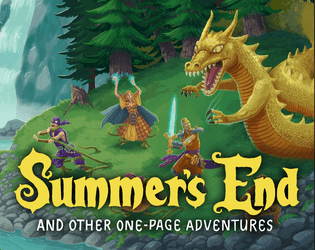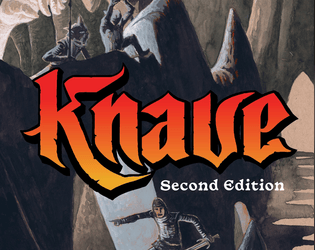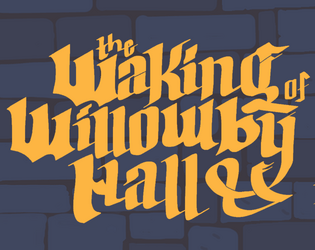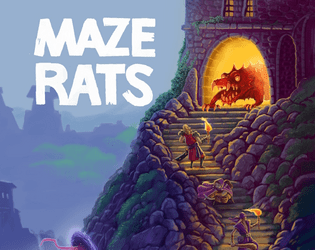I've created a Discord server to allow people to discuss their progress, which is probably easier than using this forum. https://discord.gg/Ky5t2C4QSs
Questing Beast
Creator of
Recent community posts
I think one problem is when people talk about RPG theory there's this implication that a potential theory exists that would cover all play styles and game types, when there's no guarantee that that's the case. Tactical dungeon-raiding games and, say, relationship-focused storytelling games are so completely different in their inputs, outputs, and goals that it seems weird to even call them the same sort of activity.
Each style of play needs a different theoretical framework. I've only seen theory discussions be productive when they are very tightly focused on "how do I make this one particular style of play better?"
I think there might be some edge cases of OSR books with a lot of rules, but even in those cases the vast majority of the rules are hardly ever referenced in play (Hackmaster might be an exception, I haven't played that). I don't think I've ever seen a DM in an OSR game look something up in the rules, apart from spell descriptions and things like that.
I'd say that OSR games are very low on Ludus, as both the rules and the characters tend to be mechanically simple. There isn't much system to master. Instead, the usual focus is on understanding and mastering the fictional world. The degree of Agon or Venting seems very dependent on the particular group, while Fiero is the trait that seems pretty uniformly emphasized.
There is a lot of theory in the OSR about how to support what you're calling Fiero. Winning treasure through sheer cleverness, planning and player skill is pretty core to that playstyle. For example:
- Don't balance encounters, but do telegraph them so the party knows in general terms how deadly different challenges are, and can pick between them or prepare for them. This is often called Combat as War vs Combat as Sport.
- Roll in the open. Don't fudge dice for or against the party. Be as fair and neutral as possible in your role as referee. The players should be playing and strategizing against the situation, not against you. If players die, then they die. If the big bad evil guy dies in round one because the players thought of a brilliant tactic, then bravo, they killed him.
- Present them with "OSR-style challenges". These are challenges that have no easy solution, many difficult solutions, requires no special tools, can be solved with common sense (as opposed to system knowledge or setting lore, and isn't solvable through some ability someone has on their character sheet.
I'm just gonna link a bunch of places to check out if you want to deep dive into the OSR wormhole:
http://questingblog.com/resources/
https://dungeonspossums.blogspot.com/2019/02/how-to-get-started-playing-old-scho...
https://www.youtube.com/channel/UCvYwePdbWSEwUa-Pk02u3Zw/videos
https://drive.google.com/file/d/1rN5w4-azTq3Kbn0Yvk9nfqQhwQ1R5by1/view
Hey I'm Ben Milton, I run the YouTube channel Questing Beast, which focuses on showcasing the best stuff coming out of the OSR/Post-OSR/Adventure Games scene. Started playing consistently about 5-6 years ago when Andrew Armstrong of Dawnforgedcast invited me to his game. I've been designing boardgames, wargames, and card games since I was a kid.
I've published two games: Mithral-best-selling Maze Rats, and Platinum-best-selling Knave. I'm currently working on writing the upcoming "Jim Henson's Labyrinth: The Adventure Game" for River Horse Games. I'm on twitter at @benjamilt.






